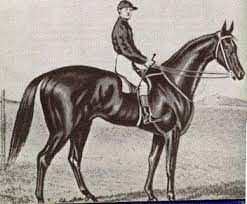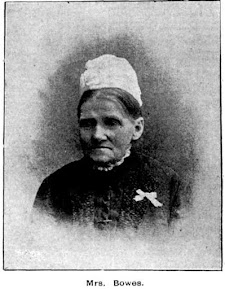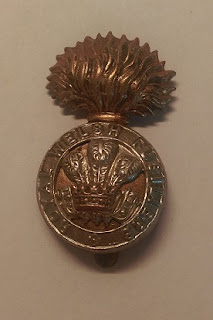A magical combination
The Melbourne Cup has been raced and won. For many - lost! Great Trip who
had only won one other race in over 12 months took it out in style. Well done
to the owners, trainers, mucker-outers, the Jockey and of course the horse.
Today's post is about the Jockey who not only rode the mighty Archer to
victory in the first Melbourne Cup but backed up for the victory again on the
same horse the following year!
JOHN CUTTS DILLON
John was born @ 1829 to Tom Dillon, a clerk, and his wife Ann nee Butler. Tragically
his father died before he was born, and his mother was merely 17 years old. Ann
married again in 1837 to Robert Cutts who had been sentenced to death for horse
-stealing in 1825 but commuted to life originally being sent to Moreton Bay. Robert's
father, William Cutts, also arrived on these shores as a convict in 1829
sentenced to 14 years for receiving stolen goods, William Cutts went on to be
the licensee of the Homebush Inn and died in 1858.
John was given the second name of "Cutts" by his stepfather in
honour of his father William. Besides being a Publican, William Cutts was also
a horse trainer and John learnt how to work in unison with a horse at his step
grandfather's instructions.
Dillon showed his horsemanship early on as he won the Queen's Plate at
Flemington Racecourse in 1851 and 1852 on Cossack trained by John Tait. Tait
sold his horses in 1855 and visited England to get breeding stock and then
operated out of western Sydney.
John married the widow of William Cutts in 1859. Mary Bradbury had been
born in Norfolk Island in 1839 and before she was 14 had married the much older
William. After their marriage in Sydney, John and Mary moved to Hartly and over
the years went on to have five children.
In the meantime, Etienne Livingstone De Mestre, horse breeder and trainer, went into partnership with his brother
Andre and leased a section of land in the Shoalhaven area from their mother and
established a horse stud, stable and racecourse. The brothers inherited the
land and aimed to make it the best training and breeding establishment outside
of Sydney.
Archer was bought by de Mestre and began
his training near Nowra in May 1860. He was considered a large three-year old and
nicknamed “The Bull”. His large frame told on his legs, and he was frequently
lame. Archer was disregarded in his first races in May 1860 but later that year
and in autumn 1861 he was undefeated in seven NSW races. For all his races during
this time (except once), he was ridden by John Cutts.
Frederick Standish, the Chief Commissioner of Police in Victoria and member of the Victorian Turf Club was credited with
forming the idea to hold a horse race and calling it the "Melbourne Cup
The
First Melbourne Cup held on Thursday 7 November 1861, consisted of a field of 17 horses, racing for the modest prize of 710 (£710) cash and a hand-beaten gold watch, winner takes all. A large crowd of 4,000
men and women watched the race.
The Cup
race was eventful when one horse bolted before the start, and three of the starters
fell during the race, two of which died. Archer, a Sydney "outsider" defeated
the favourite, and Victorian champion, Mormon, by six lengths. Archer had been dismissed
by the bookies and took money away from Melbourne, 'refuelling interstate
rivalry'. The next day, Archer was raced again and won another
2-mile long-distance race, the Melbourne Town Plate.
Archer travelled to Melbourne by steamboat again the
following year (1862) to run in the second Melbourne Cup, ridden once again by
John Cutts. This time he won 810 gold sovereigns (£810) cash and a gold watch
before a crowd of 7,000, nearly twice the size of the previous year's large crowd.
He defeated a field of 20 starters by eight lengths, a record that has never
been beaten, and that was not matched for over 100 years, Mormon again running
second. Winning the Melbourne Cup twice in a row was not repeated until Rain
Lover won in 1968 and 1969.
Etienne Livingstone De Mestre - Wikipedia
John Cutts retired from racing at the end of 1863 but continued to enjoy
close contacts with the racing fraternity through the Half Way Hotel that he
and his wife managed on Sydney Road, near Randwick Racecourse.
John 'Cutts' Dillon died, after an illness of more than 12 months, on 6
September 1872 at the age of 43. The illness had dwindled his savings leaving
Mary, his wife, and five children destitute. A subscription was raised for the
benefit of his family, and £130 was collected in just the first few days.
John Cutts Dillon headstone - findagrave with thanks
Archer, the horse, Cutts will forever be linked with, died at the age of 16 on 22 December 1872 after wandering into a field of
green barley and feasting on the grain that gave him a fatal inflammation of
the lungs.
Mary with five young children married again in 1875 to George Donnelly and bore
him two children. She once again outlived a husband when George died in 1897.
Mary died in 1903 and is buried in the plot next to John Cutts Dillon under the
name of Mary Donnelly.
Mary Donnelly - Rookwood General Cemetery (Everlast) with thanks
They are buried in the old Anglican area of the Cemetery in Zone B Section C,
plots 221 and 222 respectively.
This blog, during its composition, became more than a two-dimensional tale and if you have any comments don’t hesitate to add them below or at the group Facebook pages which you can find from a search at
rookwoodcemeterydiscoveries
Or send me an email at lorainepunch@gmail.com







Comments
Post a Comment